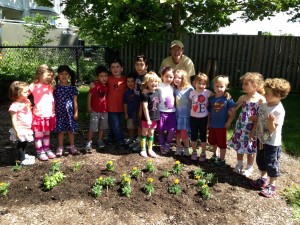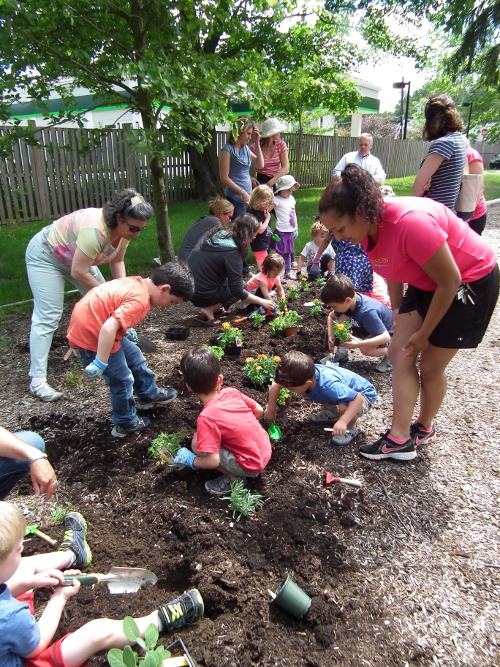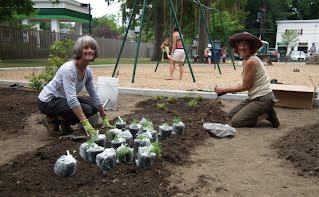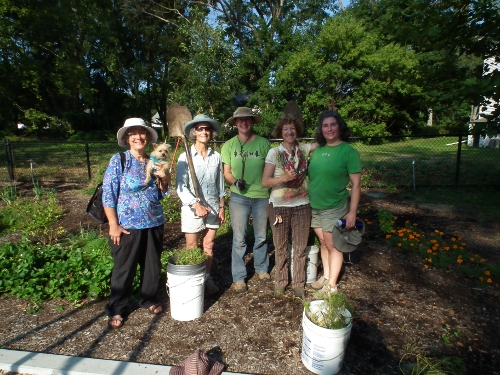![]() Get involved in growing food all over town! We are in/directly involved in several food-growing initiatives:
Get involved in growing food all over town! We are in/directly involved in several food-growing initiatives:
- The Hannah Williams Playground Ecological Food Garden.
- Two experimental plots at the Community Gardens: growing more than you thought you could in New England!
- Seed starter and garden support group: a group of friends gardening together, exchanging seeds and seedlings, experience and work.
- We also promote our Public School Gardens, maintained by the Wayland Green Team.
- Past Event: Omnivore’s Delight Challenge.
Join us! We are looking for more volunteers to help plan, plant, weed, water and harvest, and more beekeepers and bee friends!
The Hannah Williams Playground Ecological Food Garden
Background
In June 2012, the Wayland DPW under the direction of Don Ouellette secured generous funding from the Wayland Beautification Committee for a small part of the newly renovated Hannah Williams Playground. The spot, in the sunny South-East corner of the park, was put aside for an Ecological Food Garden. This was a fantastic opportunity for our town to integrate food into our beautiful public spaces. It has been done but not nearly as often as it should be. Kaat Vander Straeten volunteered to design it and spearheaded its actualization.
Concept
- All plants are edible
- All plants are perennial: a long-lived and dynamic system
- Permaculture design: edible yield by working with nature
- A polyculture: diversity
- A stable system: all niches (horizontal space / vertical space / soil horizons / nutrients) are filled
- A balanced, non-competitive system: each plant fills a different niche, thus partitioning/sharing resources (space, water, nutrients, light)
- A cooperative system: plants support each other in “guilds” / e.g., dynamic accumulators and nutrient miners with deep roots bring up calcium and other minerals for shallow-rooted plants
- A resilient system: each plant fulfills multiple purposes and functions (one at least being edible) and all functions are fulfilled. When one element falls away, others take up its function. When a certain function needs more support, other elements contribute.
- An autonomous system: self-regulating, self-maintaining, self-renewing (less maintenance), once established.
- Less inputs: builds its own soil, conserves water, no need for fertilizer, no need for herbicides, provides its own pest control.
- Supports invertebrate and insect wildlife.
- Educational: a place where we can learn about food in its context: plant biology, nutrient density, soil and soil life, micro-climates, water, wildlife, ecology, entomology, etc.
- A healthy, natural space: all “organically” grown.
- Aesthetic, peaceful, fun, delightful.
- A meeting place for community: tours, school groups, workshops, small community gatherings.
In the news



